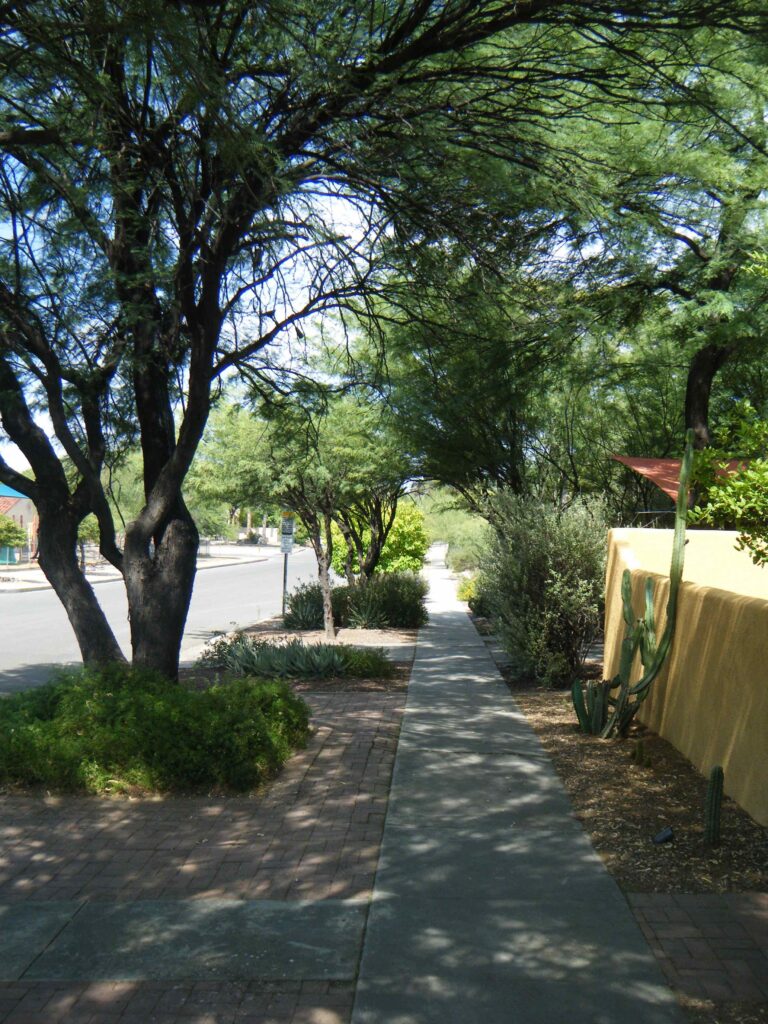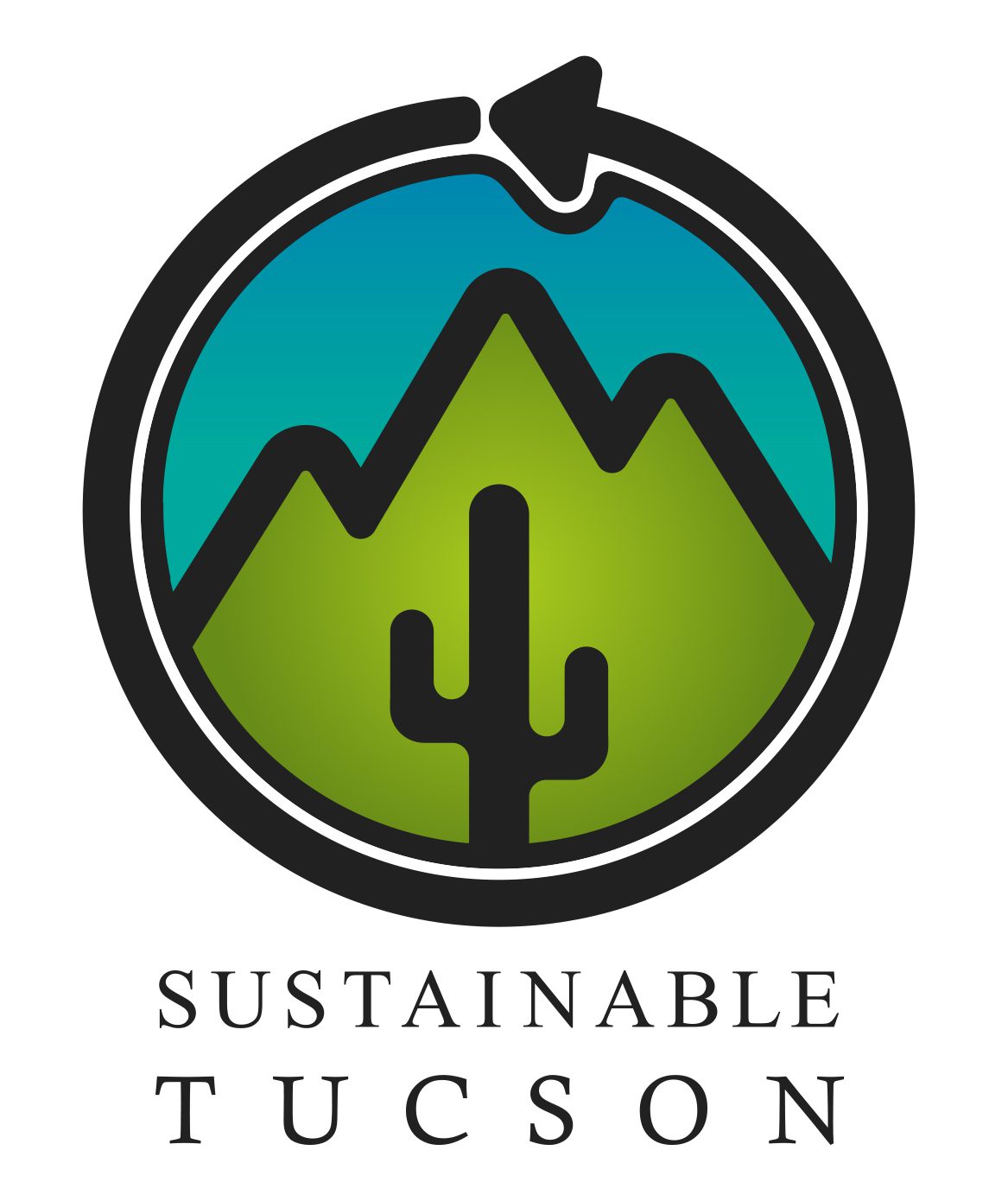Tuesday, February 13, 6:00-7:30 pm

The weather keeps getting hotter and drier in southern Arizona. In 2021, the EPA reported that Pima is the third fastest warming county in the US. In 2023, July was Tucson’s hottest month on record.
We need more shade! This was the chorus from Tucson residents as the City worked on its climate action plan, Tucson Resilient Together. The Million Trees project is a big part of the community’s effort to cool the urban heat island. A side-benefit: according to a report in Science (Bastin et al, 2019), “Photosynthetic carbon capture by trees is likely to be among our most effective strategies to limit the rise of CO2 concentrations.” Other benefits of city trees include:
- Cleaning the air
- Beautifying neighborhoods, business districts, parks
- Calming traffic
- Reducing risk of violence
- Providing habitat for birds
Join us for a panel conversation on what we can do to expand the urban forest, especially in parts of Tucson that are currently sparsely shaded.
Panelists:
Adam Farrell-Wortman, director of horticulture at Tucson Botanical Gardens, manages the care of a diverse palette of herbs, forbs, cactus, shrubs, and trees. As a garden steward and educator, Adam specializes in regenerative practices such as composting and mulching. Currently, he is overseeing a study of natural soil regeneration for the health and vigor of trees in the Gardens.
Ann Audrey, lead consultant on Tucson’s Urban Forest Master Plan and author of the guidebook, Native Trees for Tucson: Ten Best Practices for Using Native Trees to Improve Urban Climate Change Resilience. Other projects include a response guide to insect and disease threats in urban forests of Arizona and New Mexico, and editing the Rainwater Harvesting Manual, used throughout the US to train rainwater harvesting professionals.
Vikram Krishnamurthy leads the Tree Equity Alliance, a cross-sector initiative launched by American Forests to unite diverse national partners in supporting the national Tree Equity movement. Prior to joining American Forests, Vikram served as Executive Director of the Delaware Center for Horticulture, an urban greening nonprofit based in Wilmington. In addition to reinventing DCH’s Branches to Chances® workforce and re-entry program, he helped to launch the Delaware River Climate Corps program. He brings experience in urban forestry, land conservation and local food systems, all of which contribute to his commitment to equity and environmental justice.
